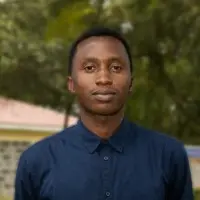Two months ago, America approved a stock exchange built from the ground up for sustainability.
The Green Impact Exchange (GIX) will be a capital market with teeth, requiring transparent disclosure frameworks and auditable ESG metrics from every listed company. The establishment of GIX proves that capital markets can be engineered to drive real climate solutions.
For Africa, this moment represents a model for solving the continent's most pressing challenge of turning huge climate potential into accessible capital.
Why Africa Needs Its Own Green Exchange
Africa holds 60% of the world's best solar resources but produces just 1% of global solar energy.
We have the resource, but we also have a capital allocation problem. The continent's renewable energy projects prove what is possible.
Morocco's Noor Solar Complex generates over 580 MW of clean energy, powering 1 million people through one of the world's largest concentrated solar installations.
South Africa's Renewable Energy Independent Power Producer Programme (REIPPP) has added over 6,000 MW of renewable capacity to the grid, significantly diversifying the country's energy mix away from coal dependence. Kenya's Lake Turkana Wind Power Project produces 310 MW, enough electricity for 1,000,000 homes, as Africa's largest wind farm.
According to the International Renewable Energy Agency, Africa's renewable energy capacity has grown by 24% annually since 2020.
But the challenge is, Africa suffers more climate-related economic damage as a percentage of GDP than any other region. The projects highlighted above show a growing number of bankable green projects, but they need scalable, trustworthy capital markets to reach their potential.
Africa doesn't need climate charity. It needs climate capital. And that starts with a market.
Learning from GIX
GIX is expected to succeed because it eliminates greenwashing through robust standards.
Companies must make binding sustainability commitments. This structure builds investor trust and directs capital toward genuine climate solutions rather than marketing plays.
Africa can build on this foundation while focusing on its unique advantages. The ‘EcoAfrika Exchange’, Africa's dedicated green capital market, can be designed with strong social impact alignment and development bank partnerships.
What Africa Can Do Better
The EcoAfrika Exchange can take advantage of Africa's institutional ecosystem and tackle local market realities.
• Institutional partnerships that work
Development banks such as the African Development Bank and Afreximbank can bring anchor investments and technical expertise specifically designed for emerging markets. These institutions understand African project cycles and can provide the patient capital that green infrastructure requires.
Major African stock exchanges such as Johannesburg, Nairobi and Nigeria have already established green bond sectors and sustainability guidelines. Rather than competing with these markets, EcoAfrika Exchange can unify them into a continent-wide platform that maintains local expertise while achieving global scale.
• ESG rules built for African economies
Generic ESG frameworks miss Africa's economic complexity.
EcoAfrika Exchange can develop unified, Africa-specific ESG listing standards that account for diverse market opportunities and social impact metrics that matter to African communities. The exchange must mandate adoption of global frameworks like the Task Force on Climate-related Financial Disclosures (TCFD) and Value Reporting Foundation (VRF) standards while customizing requirements to African realities.
This creates credibility with international investors without imposing unrealistic compliance burdens on African companies.
• Board-level ESG obligations
Board-level sustainability requirements will drive governance improvement across the continent. The EcoAfrika Exchange can ensure accountability from the top while building African expertise in climate governance by requiring listed firms to establish board committees dedicated to sustainability oversight.
The Blueprint
Building EcoAfrika Exchange requires coordinated action across 4 important areas:
1. Regulatory coordination
Success depends on aligning securities frameworks to enable cross-border listings and investment flows.
A Pan-African Green Finance Task Force will fast-track policy alignment by coordinating with regional regulators and establishing common standards that reduce complexity for both issuers and investors. This coordination creates the foundation for African companies to access continental capital while maintaining listing flexibility across multiple markets.
2. Data infrastructure
The EcoAfrika Exchange needs strong digital platforms for real-time ESG disclosure and verification.
Partnerships with global ESG data providers will ensure international credibility, while collaborations with local universities will develop Africa-relevant metrics that capture the continent's unique sustainability challenges and opportunities. Investment in ESG dashboards and Africa-specific indicators will provide investors with the transparency they demand while building local capacity for data collection and analysis.
3. Capacity building
The exchange's success requires training local regulators and company boards on international frameworks while developing Africa-specific expertise.
Pan-African certification programmes for sustainability professionals will create the talent base that EcoAfrika Exchange needs to operate effectively. This capacity building ensures that EcoAfrika Exchange operates with global standards while maintaining African leadership and expertise.
4. Product innovation
The EcoAfrika Exchange can develop financial instruments customized to African opportunities.
Green bonds and sustainability-linked loans will take advantage of the continent's massive natural capital and emerging renewable projects. Carbon-credit marketplaces will monetize Africa's forests and grasslands while funding conservation efforts.
Dual listings on EcoAfrika Exchange and international sustainable exchanges will attract both local and international green capitalcapital, creating liquidity while maintaining African control over strategic assets.
The Capital Platform Africa Deserves
The opportunity is immediate.
Africa's renewable energy projects demonstrate massive scalable potential. What's missing is the coordinated action to build the EcoAfrika Exchange before others define Africa's green finance future.
Africa must start building where green money will flow.
If we don't shape our green future, someone else will sell it to us.
